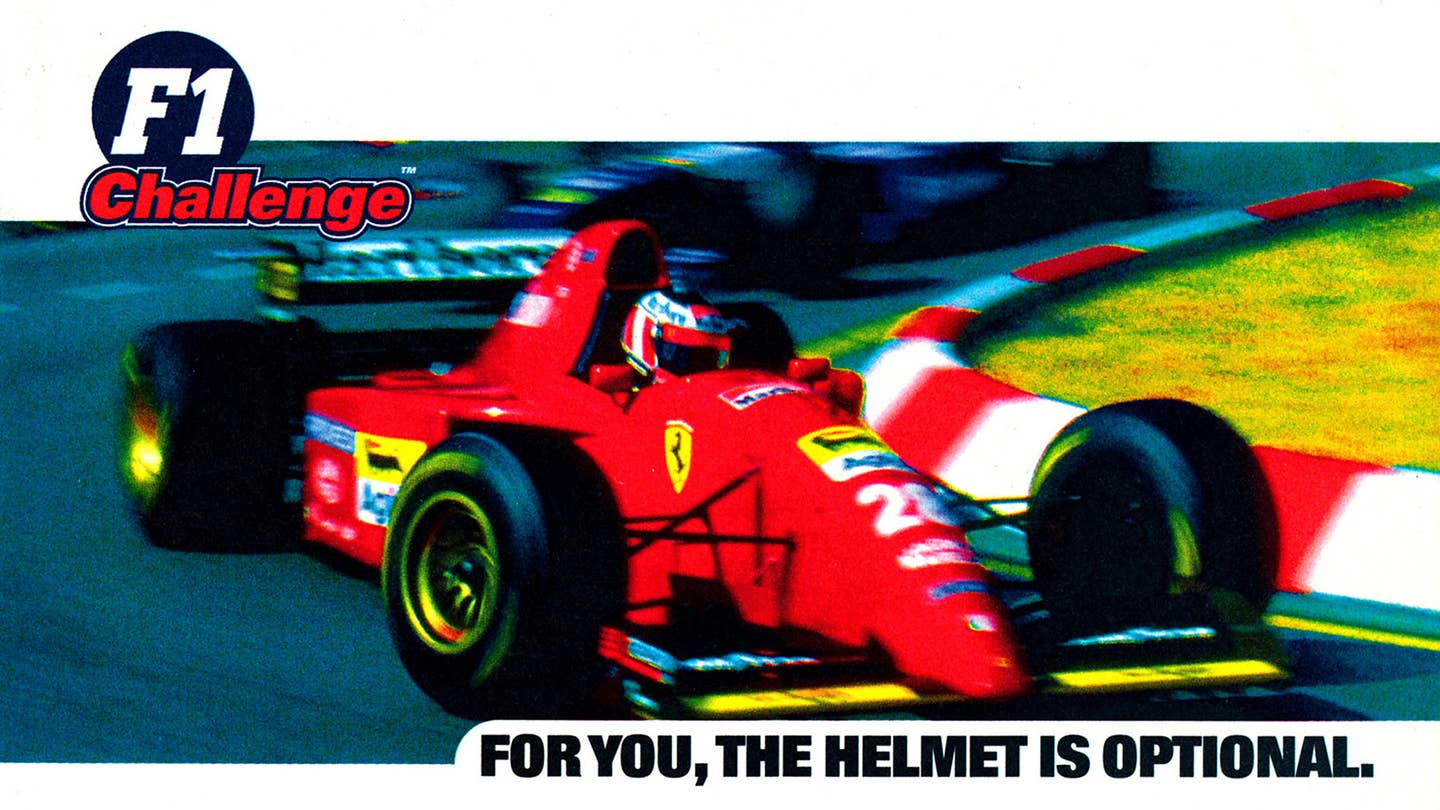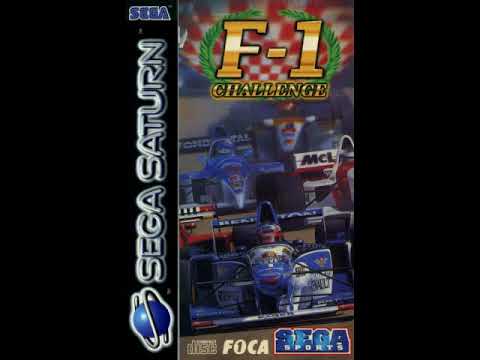F1 Challenge Is Still an Ambitious Grand Prix Sim, 30 Years On
This 1995 F1 game was ahead of its time, but playing it today feels like stepping into a time machine.

Sports gaming simply used to be more interesting. In the days before license exclusivity, you'd have a bunch of different developers taking their cracks at the same spectacles. Even if the results weren't uniformly great, each had its strengths. Many of us grew up playing Bizarre Creations' Formula 1 series on PlayStation, but Sega's unlucky 32-bit console, the Saturn, gave us one of the most interesting Grand Prix sims of the day—one that you'd figure Electronic Arts might be wise to look to for inspiration.
I'm talking about F1 Challenge, an often overlooked F1 game from 1995 that, at first glance, doesn't have a lot going for it. Whereas Sony's F1 games had all the teams, drivers, and tracks of the 1995 season, F1 Challenge had just three real tracks and seven cars. There's no formal championship mode, either, and visually speaking, the game's not much to look at aside from its delightfully low-poly car models. The Saturn was a bear to develop for, after all.
But jump into a race at Hockenheim, Suzuka, Monaco, or one of the game's fictional Neo City circuits, and there's a lot to like. First, you're treated to a rather charming garage sequence, where you can make some alterations to your car's tire, aero, and fuel setups before the lights go out. This is about as serious as you'd want a racing game from 1995 to get, and from there, you shouldn't have any trouble getting acclimated to the game's tight, predictable handling. As your tires wear, grip gives way to oversteer, but it's never really uncontrollable; hell, it's fun to start breaking the tail out in every corner, almost like you're intentionally drifting in Daytona USA.
It's the soundtrack, though, that has endured as one of F1 Challenge's finest qualities. Hockenheim, Monaco, and Suzuka each have their own themes, and they're '90s racing gold with foreboding synth melodies, soaring guitar riffs, and swelling piano. If you've ever heard "Truth," the song by Japanese jazz-fusion band T-Square that used to be the theme to F1 broadcasts in the country, F1 Challenge's score strikes the same tone, only without the electric flute. Best of all, because music in games back then tended to be saved to disc as Red Book audio, you could throw the game in a CD player or, some years later, rip it to your PC and take the tunes with you on your own epic drives.

That's really F1 Challenge in a nutshell, and it's an enjoyable enough trip down memory lane as it is. I've always felt that retro F1 games, or really any sort of racing title dedicated to recreating a particular discipline or series, kind of lives on as a time capsule of the culture and the storylines at the time, like an old magazine. Thing is, that's especially true of the Japanese version of F1 Challenge—F-1 Live Information—because that release has one big distinction: it throws out the in-race music entirely, for commentary.
Sports games often have commentary, but racing games typically go without it. Best you'd get back in the '90s were a few stilted, almost robotic clips of Murray Walker, may he rest in peace, piping up with "It's Alesi!" when the Frenchman found himself in the wall. Even today, Codemasters' F1 games will include some commentary before the race, but it's never particularly specific, or noteworthy.
F-1 Live Information, on the other hand, takes this aspect of the experience very seriously. First off, the game actually wasn't licensed by the FIA—rather, it had the endorsement of Fuji Television, which retained regional F1 broadcasting rights back then, as well as FOCA, the Formula One Constructors' Association. The Fuji link also means those voices you hear are those of actual television announcers that would've been very familiar to Japanese fans at the time: Masaharu Miyake and Jun Imamiya. (If you've ever watched the tear-jerking video of Japanese broadcasters announcing Ayrton Senna's death live on the air, Miyake is the man in the center, and Imamiya is his colleague to his left.)

Now, unfortunately, I don't know any Japanese but thanks to YouTube's built-in translation function, us non-speakers can at least understand, vaguely, what Miyake and Imamura are talking about during gameplay. Critically, the commentary is vastly more extensive than random exclamations; the men talk for the entirety of a race, and an appearance of a certain car or driver in the game's picture-in-picture window might trigger a conversation about their performance last season, or adjustments engineers have made to the car to comply with new regulations for 1995. There's also plenty of circuit-focused chatter, like on the importance Hockenheim places on engine performance, back when it was a true power circuit. I can't tell you how natural it all sounds, but the fact it's so specific and based in what was actually happening in the sport at the time means the clips probably come across pretty smooth, at the risk of being quite repetitive given that the game had just three real locations.
Personally, I'm not sure I could give up F1 Challenge's sick tunes for F-1 Live Information's rather creative and ambitious use of disc space; maybe developer Bell Corporation should've offered an option where the music could play softly underneath the commentators, or given players the ability to choose what they'd like to hear in race. In any case, going all-in on commentary at a time when gaming hardware was finally capable of playing back detailed audio was a really cool idea, and it makes me wonder how much more immersive today's games could be if developers invested in properly recreating the spectator experience.
A few weeks ago I watched the 2010 Senna documentary for what I estimate to be the 12th time, as I built my Ayrton Senna MP4/4 Lego set. It left me nostalgic for a time I never lived through. I also recently picked up the latest installment of MLB The Show, with its Derek Jeter mini-campaign, chock full of period-appropriate commentary to re-immerse players in the Yankees' multiple pennant runs through the late '90s. If you want to revisit a bygone era of your favorite sport, whether that's auto racing or baseball, you can always watch old footage and YouTube videos. But I'd recommend playing old games too, like F1 Challenge and F-1 Live Information. And if you can actually understand what's being said, well, even better.
Got tips? Send 'em to tips@thedrive.com
